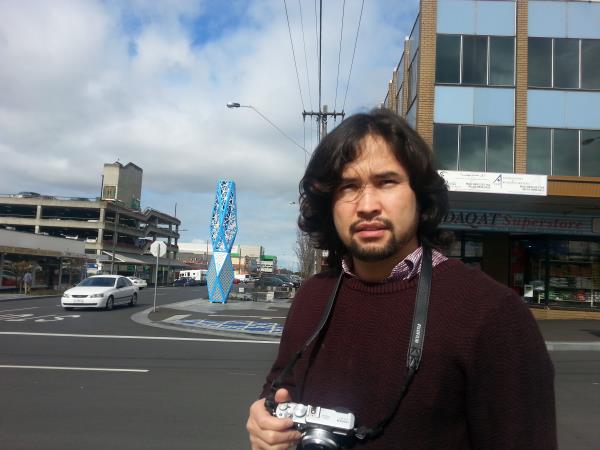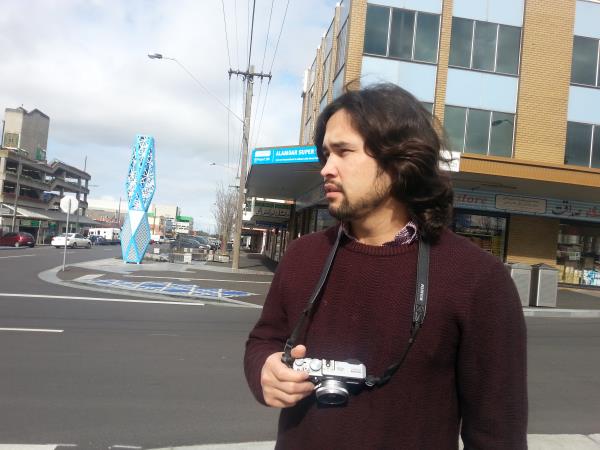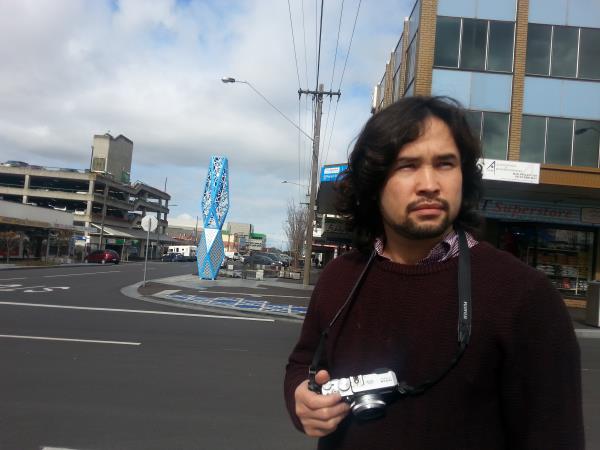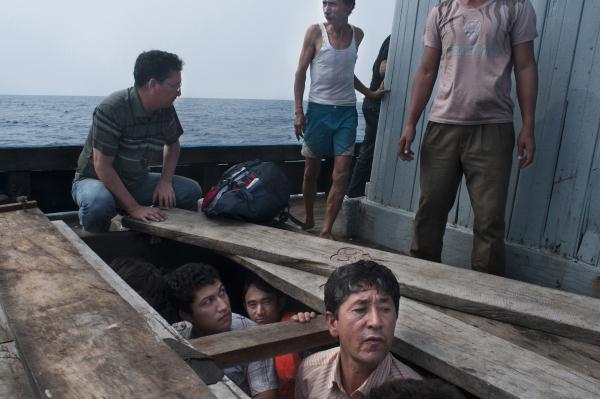By CAM LUCADOU-WELLS
PHOTO-JOURNALIST Barat Ali Batoor has ridden outrageous luck to settle in Narre Warren.
He fled for his life from Afghanistan in 2012 after bravely exposing the under-reported prostitution of ‘dancing boys’ by the nation’s warlords in an artfully-shot picture essay.
“I like taking risks,” he says.
“Things need to be told. If nobody else is doing it, then I have to do it.”
Batoor, 31, works as a community guide for new arrivals at AMES Dandenong and enjoys living in “quiet” Narre Warren after life had very much been on the edge.
While working on his offending photo-essay he found Afghan boys as young as eight, dressed and made-up in women’s clothing to dance at parties for the privileged.
Batoor said many of the boys were street kids and orphans, kidnapped or sold to warlords in much of Afghanistan, including its capital Kabul. Many were used as warlords’ sex slaves.
“Having a good-looking boy is seen as a symbol of status,” Batoor said.
“This had been a popular tradition that had been going on for so long. The problem with this was no-one can speak about it. It’s a taboo.”
Batoor said he shone the world’s spotlight on the practice, risking his life to talk to the boys and photograph their trade.
The story rocked the Afghan Government after it was published internationally and in Australia in such weighty media as The Washington Post.
The matter was raised at the UN, which pressured the Afghan Government to take action – though it was only to ban dressing the boys in female attire and with bells on their feet.
The warlords were offended by the expose which “created a problem for me”, Batoor said.
“They’re greater than the law. They can do anything – it was extremely scary.”
Batoor’s photo essays captured a Red Cross program for amputees in Afghanistan, the monstrous 2010 floods in Pakistan and local reaction to Osama Bin Laden’s assassination outside his formerly secret compound.
“Sometimes it’s advantageous if you’re a local. You can get into the depth of the story, you know the language but on the other hand, you can’t escape quickly like foreign journalists. You don’t have the passports.”
After the dancing boys story, he had to flee.
After sheltering in Pakistan for a short time, Batoor enlisted the help of people smugglers to fly to Thailand, illegally enter Malaysia and travel by boat to Indonesia.
He documented his perilous journey, which included an aborted boat trip to Christmas Island. The series won two Walkley awards last year.
Along the way, the captain decided the leaking boat crammed with 96 people could not endure worsening storms.
“We were never confident. There’s a 98 per cent risk of dying on that leaky boat crossing.
“The water was pouring in faster than the pumps could take it out. Everyone lost hope that we could make it to Christmas Island or get back to Indonesia.”
Six hours after turning back, the boat landed without food or water on a deserted side of a small island in western Java. Batoor’s camera was damaged by water but luckily his memory card was intact.
The stranded party hailed a neighbouring resort boat, which handed them to detention in Java. All cash and belongings were confiscated in the detention centre. But by chance, Batoor’s backpack – containing his memory card – was not searched or taken.
He and seven others escaped early the next morning as guards gathered around a campfire. The escapees pushed out two window panes, climbed into a nearby tree and used a pillow to cushion their clambering over a glass-shard tipped wall.
They split up. Batoor and his partner hailed a taxi, which took them to Jakarta. Without money, Batoor rang a journalist’s business card using the cabbie’s mobile phone.
Batoor had refused an interview request from the journalist before the failed boat trip to Christmas Island. Now he asked the journo to pay for the fare, in exchange for photos and an account of his clandestine journey from Thailand published on the Global Mail website.
Batoor was facing up to eight years waiting to be processed as a refugee – but his case was “put in a special tray”.
“At the time, my documentary Batoor’s Journey was screened on SBS Dateline. My journalist friends (who Batoor helped in Afghanistan) campaigned for me at the UN. They didn’t allow me take the boat again.
“I had a fear it might backfire. I thought someone has to pay for telling this story for the tens of thousands of people.”
Batoor is working on a photo book of his epic journey.
He has recently focused his camera on fellow Hazaras, who have built successful businesses in Dandenong. The photo essay has toured nationally as an exhibition.
“I was really surprised and happy to see my community doing really well. You can see the way it has changed Dandenong.
“They say 10 years ago it was really risky to come to Dandenong after 5pm.
“It’s now really lively. It’s a good business hub.”










